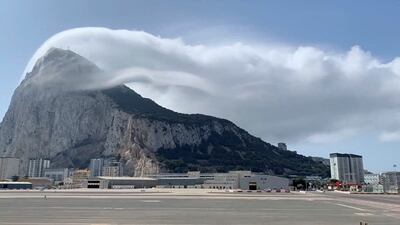Gibraltar has eventually been recognised as a city, 180 years after it was first granted the status.
The British overseas territory, on the southern tip of the Iberian Peninsula, had this year applied to become a city as part of Queen Elizabeth's platinum jubilee celebrations.
But researchers have since discovered it already was one.
The rocky outcrop was granted city status in 1842 by Queen Victoria.
However, it was somehow omitted from the government’s official lists.
UK Prime Minister Boris Johnson described the addition of Gibraltar as a "huge accolade" and praised its "rich history and dynamism".
The territory was one of 39 places to apply to become a city as part of a jubilee competition.
Places selected often have a cathedral, university or a large population but there is no strict criteria and status is granted by the monarch on the advice of the government.
Eight of the 39 applications, including Doncaster, Bangor, and Dunfermline, were chosen this year.
The Gibraltar oversight came to light after researchers checked the National Archives.
An updated record of the 81 places named as cities has now been published.
Gibraltar is one of only five locations to be listed outside the UK.
Hamilton in Bermuda, Jamestown in Saint Helena, and Douglas on the Isle of Man were already present. Stanley in the Falklands Islands was added for the jubilee this year.
Gibraltar became a British overseas territory in 1713, when it was ceded as part of a peace treaty after the War of the Spanish Succession.
It is largely self-governed, with its own Parliament and government, but relies on the UK for defence and foreign policy.
The British outpost was first inhabited more than 50,000 years ago by Neanderthals. It is believed it may have been one of the last places they lived before they died out.


